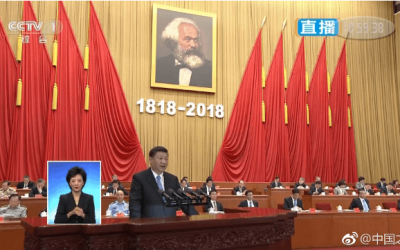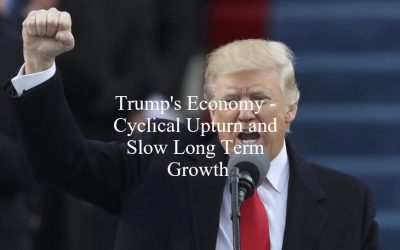Boris Johnson’s personal “peculiarities” and scandals – fined by the police for breaking Covid restrictions in “partygate”, misrepresentations even to his closest government colleagues and members of Parliament etc. – were the immediate cause precipitating his removal from office. But behind Johnson’s peculiarities far more powerful economic, social and political forces were involved in his resignation. Indeed, the same personal features of Johnson which had led to these social forces supporting him becoming prime minister were also the reason why they then lined up to make use of these characteristics to secure his removal from office. This is also the reason for the extremely vicious, even by Tory standards, Conservative leadership campaign.
The most open feature of this Tory fight, preceding and following Johnson’s resignation, is of course the contest to propose the biggest tax cuts by the candidates of the Tory “right” and the personalised campaign carried out by all of these against Rishi Sunak – who wants a slower pace of tax cuts. But what is involved in this fight, behind the issue of taxes, is not a difference over goals but merely a sharp one regarding tactics over how to achieve the key strategic goal of the Tory Party – to “Americanise” Britain, that is to move Britain even closer to the US in foreign policy, to deregulate its economy, to further weaken even the extremely inadequate safeguards on labour, to remove environmental protection etc. The Tory right wants to move rapidly to this agenda – cutting taxes is simply one part of achieving it. Sunak, however, believes very rapid implementation of the Americanisation agenda will be so unpopular that it will certainly lose the Tories the next election. Therefore, he wants to move towards the goal of Americanisation more slowly and in a more disguised fashion. Hence no difference in Tory goals, only in tactics.
The Tory Patty consolidates around Brexit
The context of this fight is that the Tory Party has now consolidated itself around a firmly pro-Brexit line. But this has thrown it into a prolonged internal crisis – as testified by the successive rapid-fire resignations of Prime Ministers Cameron, May and Johnson. Furthermore, it can, for reasons that will be outlined, be foreseen with certainty that Johnson’s departure will not bring this turmoil to a halt. The vicious Tory leadership campaign is merely the next round, not the conclusion, of the fight.
The reason for this is that Brexit was never really an issue purely affecting Britain. It concerned relations between the world’s two largest capitalist economic powers – the US and the European Union 9EU). Britain’s capitalist economy is too small to pursue a path independent of these two largest capitalist economic forces – only a socialist British economy would be strong enough to pursue an independent path. Brexit was therefore never an issue about Britain’s “independence” – that was a pure propaganda illusion promoted by pro-Brexit forces. It was over whether the UK should form an alliance with, more precisely subordinate itself to, the US or the EU. Leaving the EU, Brexit, meant, as long as Britain remained a capitalist country, it becoming still more subordinate to the US.
Economics and politics in Brexit
Certainly, from the viewpoint of the British capitalist economy, it was more rational to be part of the EU than to pursue even greater subordination to US policies – for example 42% of Britain’s trade is with the EU compared to only 17% with the US, Britain had veto power for fundamental changes in EU economic policy while it has no such power in regard to the US etc. But, in the famous phrase of Lenin, “Politics must take precedence over economics. To argue otherwise is to forget the ABC of Marxism.” Britain, more than a century ago, made the strategic military and political decision that, as its own imperial power declined, its international interests could only be safeguarded by subordination to the US. This was officially declared a “special relationship”, but of course in fact it was simply a supine acceptance by Britain of US positions on all decisive strategic issues. Britain became the most faithful “poodle” of the US – participating even in US actions such as the invasion of Iraq which other major European states such as France and Germany refused to support. This continues even more under Brexit as capitalist Britain is today weakened.
US changing policy to the EU
Once this international context is understood it is clear why when in 1973 Britain joined the EU this was in no sense a break with the US. The US had supported the creation of the EU to economically strengthen capitalist Western Europe against the socialist USSR. With Germany, at that time, divided into two states, a capitalist West and socialist East, no country in the EU could remotely challenge the US even on the economic terrain. The US political establishment in the 1970s, therefore, almost unanimously saw Britain joining the EU as useful to itself – it meant the United States’ most faithful major ally would influence EU policy.
But by the beginning of the 21st century the situation had changed. The EU had become an economic bloc of essentially the same size as the US. Furthermore, Germany had now reunified – creating a powerful economic powerhouse capable of dominating the EU. The virtual unanimity in the US capitalist class supporting strengthening the EU therefore collapsed. A major section of the US capitalist class, finally openly headed by Trump, consequently wanted not to build up the EU but to weaken it. An obvious way to do that was for the US’s most faithful ally, Britain, to withdraw from the EU.
With this backing from the US a serious campaign for Brexit therefore began in Britain – previously it had been peripheral. This culminated in success in the 2016 referendum. This campaign for an even closer political alliance of Britain with the US was also endorsed, in addition to for foreign policy reasons, by those sections of British capital which wanted an “Americanisation” of the British economy and society – deregulation of markets, weakening of welfare protection, weakening of trade unions, elimination of environmental protection etc. With Brexit secured this Americanisation could start in earnest.
Post referendum chaos
But for British forces which wished to carry out Brexit there was a fundamental political problem. Any coherent, serious or honest presentation of the consequences of Brexit would have revealed that, for reasons already outlined, it would be, in present circumstances, damaging for Britain’s economy and therefore for the living standards of the British people. Consequently, to finally secure Brexit – and a three-year struggle was required for this even after the outcome of the 2016 referendum – it was necessary to have a policy put forward which was not coherent, serious or honest. “Honest” not in the “small” sense of being dishonest with members of Parliament and government colleagues but in the more fundamental one of not presenting the real policy choices involved. A leader was therefore needed who would therefore be pro-Brexit, pro-US, but also incoherent, unserious, and prepared to present dishonest polices.
The policies Johnson put forward were ideal for all this precisely because they were not coherent – except in the fundamentals of being pro-US. Instead of presenting Brexit’s real damaging economic consequences, which would have been unpopular, Johnson instead presented “pie in the sky” policies. He declared that the cuts in social spending, the “austerity” policy, would be ended, that there would be major spending on the NHS, there would be huge infrastructure spending, that the country would be “levelled up”.
Such policies, if their promises could have been delivered, would be extremely popular – and such propaganda claims helped form the basis of Johnson’s 2019 General Election victory. Winning this victory secured the goal which the pro-Brexit forces had been fighting for of getting a firmly pro-Brexit Prime Minister – Johnson’s predecessor, Theresa May, had in the referendum, of course, campaigned for remaining in the EU and presented plans for a post-Brexit Britain which did not radically cut all ties to the EU.
But, of course, such policies as Johnson put forward were entirely unrealistic. Britain’s economic performance since the Brexit referendum has been even worse than previously. Average annual GDP growth in the last five years has been only 0.6%. Even more damaging for long term economic performance, the economically dominant sections of the British capitalist class have clearly lost confidence in the economic future – the level of fixed investment, that is their financing of future expansion in Britain’s economy, is actually lower than five years ago. All this was occurring even before the impact of the Covid economic slowdown. The latter, coming on top of this, has led to the most rapid decline in British living standards since statistics began.
Achieving the real goals of Brexit
In addition to being unrealistic Boris Johnson’s “fantasy” policies were also contrary to the real goals of British capital. These did not all want the “levelling up” of socially deprived areas of the country, large scale spending on the health service, big infrastructure programmes etc. They wanted “American” policies – deregulation, cutting of social spending, slashing of environmental protection etc. As long as it was a question of pushing through Brexit they had been prepared to accept the incoherent verbal policies of Johnson, as it had more electoral appeal, but once the goal of Brexit has been achieved they demanded the abandonment of all such nonsense and the implementation of policies to as rapidly as possible Americanise Britain.
Therefore, even before Johnson’s violations of his own Covid restrictions and his treatment of colleagues was revealed, sections of the Toy party were demanding reversal of Johnson’s policies, deregulation, a “small state”, attacks on welfare, reduction in taxes on business etc. Their attitude was that the lack of coherence and seriousness of Johnson was certainly useful as long as the real consequences of this pro-US policy had to be hidden from the British people, that is during the 2016 Referendum and the 2019 General Election. But as soon as the real Brexit had to be implemented the policies Johnson had announced had to be abandoned. Either Johnson had to jettison these policies himself or he had to be replaced by another leader.
Johnson’s personal peculiarities, as soon as they became widely known through the Covid and dishonesty scandals, then blocked him from being a popular candidate to carry through the “Americanisation” policies. Therefore, the most pro-US wing decided Johnson had to be replaced. While in other circumstances Covid lawbreaking and lack of honesty could have been dismissed as “trivial”, and Johnson remain in office, due to the presence of these underlying social forces Johnson had to go. Furthermore Johnson’s “populist” politics had already served his role of delivering Brexit and therefore an even more anti-EU Tory leader could potentially be brought in. As the reporter on the European Union for the Daily Telegraph, the media “house journal” of the Conservative Party, noted: “Many of the candidates to replace Boris Johnson are much, much tougher on EU relations than the current PM [Prime Minister] was.”
Regarding the pace at which “Americanisation” should proceed Sunak, however, had a different tactical political judgement to candidates in the Tory “right” – as shown both in his policies as Chancellor and his platform for the Tory leadership. He concluded that too rapid and too open Americanisation of Britain would be electorally devastating for the Tory Party – producing the type of miserable electoral results that had been seen under Conservative leaders such as William Hague, Iain Duncan Smith, and Michael Howard. Therefore, there should not be very rapid Americanisation, with immediate huge tax cuts in order to force a “small state”, but a more gradual process of Americanisation. Sunak clearly believes this position is confirmed by the fact that opinion polls show he is the only Tory leadership candidate who is more popular than Keir Starmer – all the more “right” Tory candidates are less popular. This sharp tactical difference is the basis of the vicious fighting in the Tory leadership contest. But it is not a difference on goals, only on tactics.
The role of the Labour Party
Finally, what is Labour’s position in this? The hard-right forces in the Tory Party have a decisive political disadvantage. Their policies of rapid Americanisation of Britain involve a huge attack on the living standards of the population. Furthermore, this is in a situation in which not only is the Tory Party electorally unpopular, having recently decisively lost two by-elections and being considerably behind in the opinion polls, but strong popular opposition to it has already begun – Britain is seeing the largest strikes for almost two decades.
The Tory government is attempting to divert attention from these attacks on living standards by promoting various reactionary social policies such as racism, to which all Tory leadership candidates have signed up – symbolised by their unanimous support of the Rwandan deportation policy. But despite the reactionary character of these policies it is not at all certain that this will be successful in rebuilding electoral support. Therefore, there is a very real chance that the Tory Party, no matter who it choses as Prime Minister, will lose the next election – which must be held by 2024. The Tories would then be replaced by a Labour led government – either with Labour governing alone or with the support of other parties such as the Liberal Democrats.
Under Jeremy Corbyn Labour of course fundamentally opposed this Americanisation of Britain both internationally and domestically. But this has all been abandoned by Starmer. Internationally he has 100% backed the US on Ukraine and, going further than any previous Labour leader, has declared opposition to NATO is incompatible with being a Labour. MP. Domestically he has adopted no economic policies capable of dealing with the scale of crisis facing the country, he tail ended the Tories on Covid, and he has supported authoritarian Tory legislation. He has of course tried to put the maximum distance between himself and the RMT, and other, strikers. He has also recently pledged that a future Labour government will not try to form any significantly better economic relations with the EU. In summary he has pledged Britain’s subservience to the US on all fronts. Starmer, is not even strongly making the obvious call for an immediate General Election. Starmer appears as a type of “Rishi Sunk lite”.
Domestically, as Labour has no policies capable of improving the living standards of the population, and main role of a Labour led government with Starmer as Prime Minister would therefore be to demoralise working class voters, who are its main supporters, by reactionary policies both internationally and domestically. This would therefore pave the way for it to be succeeded by an even more reactionary Conservative government – reactionary both in subordination to the US, in its attacks on living standards, and in policies such as racism.
The rise of popular resistance
The new factor in the situation is that popular opposition to attacks on living standards has sharply increased. The RMT’s industrial action strike is already the most important strike for well over a decade -and other rail workers unions have now joined in. Given the depth of the economic crisis, and the attacks on living standards, many other workers are likely to join in this resistance. Most powerfully this threatens further strikes, but resistance is also taking place on racist treatment by the police, opposition to the US attack on abortion rights, climate change and other issues.
For the reasons already analysed whoever is elected as Tory leader will not abandon the policy of the Americanisation of Britain – the aim must the removal of the entire Tory government, not of a single Tory leader. Nor will Starmer put up fundamental opposition to the path the Tories have embarked on – although socialists must vote against the Tories and for a Labour government (a Labour government is the only way for millions of people, who at presently support Labour and Starmer, to see the character of the Labour right). But the degree of popular resistance to the Tories now will be the decisive issue in fighting which ever leader emerges from the Tory leadership fight, in helping remove the Tories, and also in preparing to resist the policies of a Starmer led government.
* * *
This is an updated version of an article originally published In Chinese by Guancha.cn.






